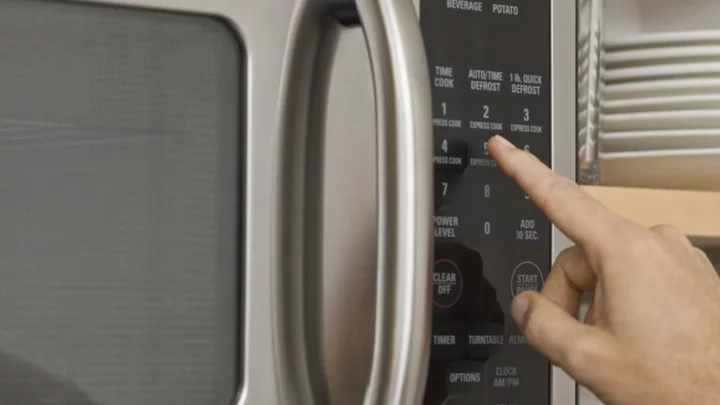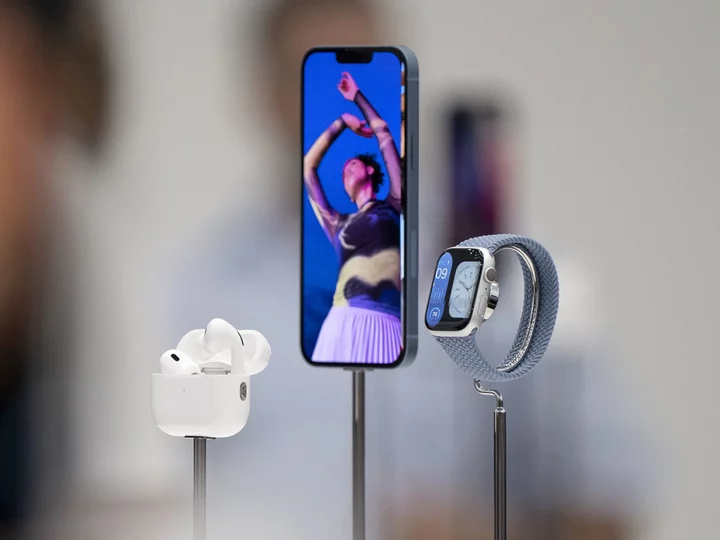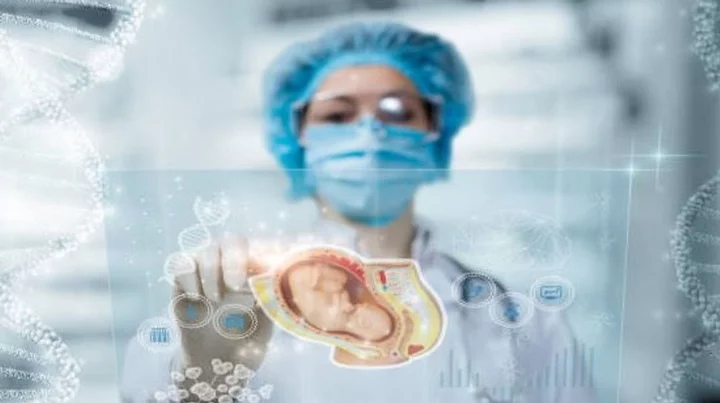
The Shortest Street in the World Is in Scotland, and Has Just One Address
Ebenezer Place in Wick, Scotland, is 6 feet and 9 inches long, and it's home to only one street address.
2023-09-10 19:15

The Mesh Grating on Your Microwave Is Actually an Important Safety Feature
To block microwave radiation, all you need is a simple screen.
2023-09-08 23:27

Everything Apple Plans to Show on Sept. 12: iPhone 15, Watches, AirPods
Apple Inc.’s most important new product unveiling of the year gets underway on Tuesday, when the company will
2023-09-08 19:51

Human embryo created without using sperm or eggs
Scientists in Israel have created a model of a human embryo from stem cells, without using sperm, eggs or a womb. A team at Israel's Weizmann Institute of Science made the model, which resembles an embryo at day 14, when it acquires internal structures but before it lays down the foundations for body organs, and the work was published in the journal Nature. But the scientists involved said it would take a long time yet to create an embryo from scratch. Team leader Jacob Hanna said the team took stem cells derived from adult human skin cells, as well as others cultured in the lab, then reverted the cells to an early state.They then manipulated them to make a model of an embryo, rather than an actual or synthetic one. "The question is, when does an embryo model become considered an embryo? When that happens, we know the regulations. At the moment we are really, really far off from that point," Hanna said. However, they said the work could open the door to new ways to test the effect of drugs on pregnancies, better understand miscarriages and genetic diseases, and maybe grow transplant tissues and organs. "They are not identical. There are differences from human embryos, but still, this is the first time, if you open an atlas or a textbook, you can say - yeah I can really see the similarity between them," said Hanna. "In about 1 percent of the aggregates we can see that the cells start differentiating correctly, migrating and sorting themselves into the correct structure, and the farthest we could get is day 14 in human embryo development," he said. Their next goal, Hanna said, is to advance to day 21 and also reach a threshold of a 50 per cent success rate. Magdalena Żernicka-Goetz, a professor of development and stem cells at the University of Cambridge, said the study joins six other similar human embryo-like models published from teams around the world this year, including from her lab. "None of these models fully recapitulate natural human development but each adds to ways in which many aspects of human development can now be studied experimentally," she said. Sign up to our free Indy100 weekly newsletter Have your say in our news democracy. Click the upvote icon at the top of the page to help raise this article through the indy100 rankings.
2023-09-08 18:29

It’s Much Harder to Find an Airbnb in NYC as New Rules Take Hold
As of Tuesday, it’s gotten much harder to find an Airbnb rental in New York City. That’s because
2023-09-06 23:27

China Considers Law Banning Clothes That ‘Hurt Feelings’ of Others
China’s public is expressing concern about a potential legal change that would allow for fines and even jail
2023-09-06 14:47

Andreessen Horowitz, Paris Hilton Back Blockchain Firm Working on Fix for AI Mashups
A San Francisco-based technology firm that seeks to help content creators track and monetize their work in the
2023-09-06 13:23

Philippine School Opening Gives Top Mall Operator Sales Lift
Top Philippine mall operator SM Prime Holdings Inc.’s revenue from its malls in the country may exceed 16.1
2023-09-06 10:45

United Airlines Planes Grounded Across the US on Equipment Outage
United Airlines Holdings Inc. grounded aircraft nationwide due to an unspecified equipment outage, according to the Federal Aviation
2023-09-06 02:17

Sweetgreen Adds Salami, Barbecue Sauce to Appeal to the Non-Salad Folks
A decade ago, Sweetgreen Inc. co-founder Nicolas Jammet couldn’t imagine his salad-focused chain featuring a dish with barbecue
2023-09-05 22:46

OpenAI CEO Sam Altman First Person to Get Indonesian Golden Visa
OpenAI Chief Executive Officer Sam Altman is the first person to get an Indonesian golden visa as Southeast
2023-09-05 11:59

Spy attire: US investing $22m in surveillance socks and other wearable tech
The federal government is reportedly investing at least $22m into developing clothes that “can record audio, video, and geolocation data.” According to a 22 August press release from the office of the Director of National Intelligence’s Intelligence Advanced Research Projects Activity (IARPA), the research and development arm of the organisation, “recently launched a cutting-edge program that aims to make performance-grade, computerized clothing a reality”. The DNI touted the SMART ePANTS program, which stands for Smart Electrically Powered and Networked Textile Systems, that “seeks to develop clothing with integrated audio, video, and geolocation sensor systems that feature the same stretchability, bendability, washability, and comfort of regular textiles,” IARPA stated. They will be used by the intelligence community, IARPA wrote. Since the surveillance technology will be woven into the clothing, “Intelligence Community staff will be able to record information from their environment hands-free, without the need to wear uncomfortable, bulky, and rigid devices.” For example, according to the release, the technology could “assist personnel and first responders in dangerous, high-stress environments, such as crime scenes and arms control inspections without impeding their ability to swiftly and safely operate.” The SMART ePANTS program’s mission is to to incorporate “sensor systems” into clothes, like shirts, pants, socks, and underwear. The Intercept reported that the federal government has dedicated at least $22m in funding to the program. It’s unclear just how big of a gamble IARPA might be making with its investment. Its website describes itself as investing “federal funding into high-risk, high-reward projects to address challenges facing the intelligence community.” “A lot of the IARPA and DARPA programs are like throwing spaghetti against the refrigerator,” Annie Jacobsen, author of a book called The Pentagon’s Brain about ​​the Defense Advanced Research Projects Agency, told the outlet. “It may or may not stick.” Dr Dawson Cagle, an IARPA program manager leading the SMART ePANTS program, said that while he is “proud of the intelligence aspect” of the program, he’s “excited about the possibilities that the program’s research will have for the greater world.” He said that he was inspired in part to create the program by his father, who was a diabetic, and therefore had to monitor his health multiple times a day. His father’s experience paired with the research that supports that the components of a computer “have already been developed, just as individual pieces,” he explained. If you can convert all of the components into a single, wearable device, the program’s goal will have been achieved, Dr Cagle said. Ms Jacobsen warned that the advancement of smart wearables could lead to future concerns over biometric surveillance by the government. “They’re now in a position of serious authority over you. In TSA, they can swab your hands for explosives,” Ms Jacobsen told The Intercept. “Now suppose SMART ePANTS detects a chemical on your skin — imagine where that can lead.” But IARPA pushed back on this assertion, as spokesperson Nicole de Haay told the outlet: “IARPA programs are designed and executed in accordance with, and adhere to, strict civil liberties and privacy protection protocols. Further, IARPA performs civil liberties and privacy protection compliance reviews throughout our research efforts.” Read More Swedish citizen goes on trial on charges of collecting information for Russia Seoul's spy agency says Russia has likely proposed North Korea to join three-way drills with China Biden says he is ‘disappointed’ at Xi Jinping skipping India’s G20 summit Vodafone users say they can’t call people World’s first solar-powered hybrid truck tested on public roads Apple is about to make a huge change to the iPhone that it never wanted to do
2023-09-05 06:17
